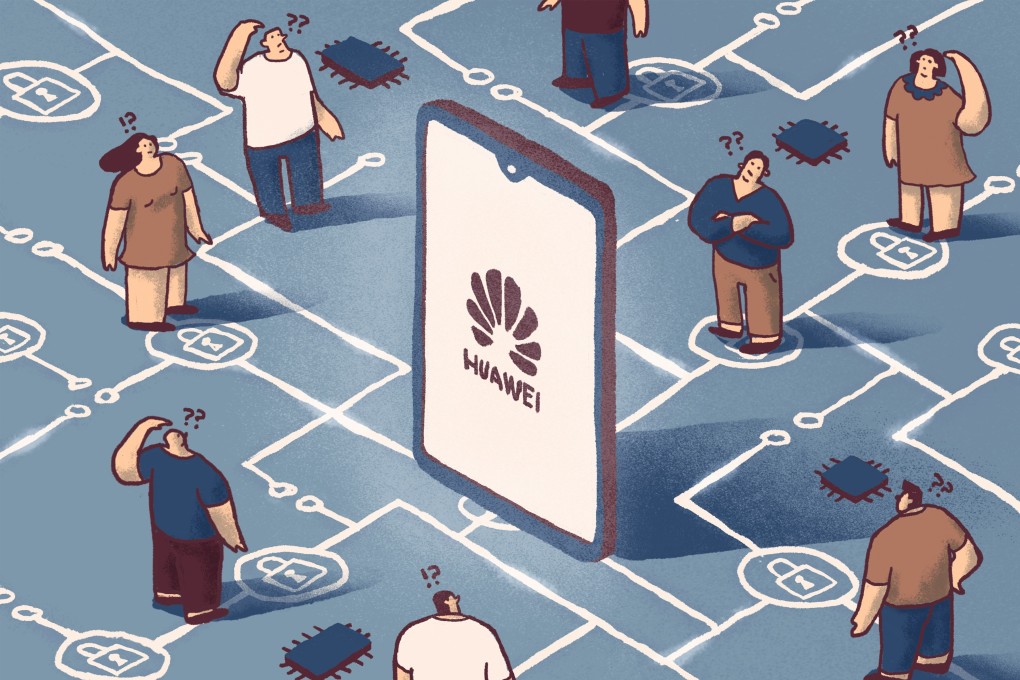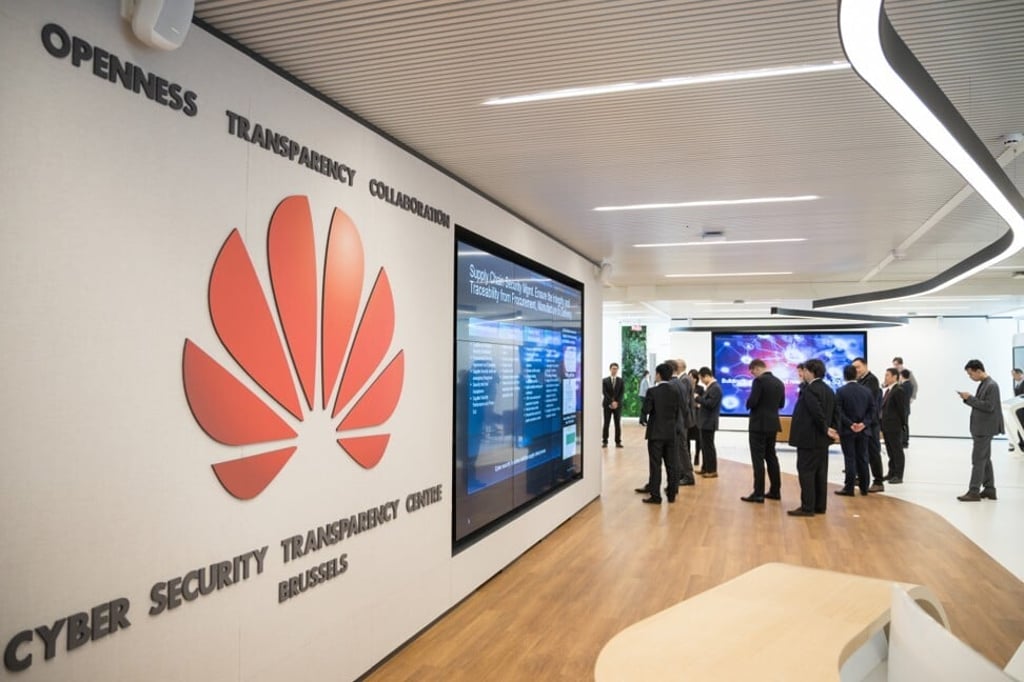Cybersecurity at top of Huawei’s agenda as Europe decides on 5G infrastructure
- In the third of our eight-part series on Huawei, Zen Soo and Jane Zhang report on the company’s effort to gain support from major European economies, like Germany and the UK
- Huawei had 91 total 5G network projects as of February, 47 of which are located in Europe

The ground floor of this two-storey centre is replete with wood laminate flooring and clean white walls rigged with multiple screens, flashing slogans from PowerPoint slides such as “5G is a shared responsibility” and “A strong ecosystem is our best protection”.
“The centre is how we demonstrate openness, where we show our security approach strategy, research, Huawei’s software and hardware product development, and our supply chain,” said Marco Men, a senior security solution architect who regularly guides visitors through the exhibition. Visitors are also able to view flowcharts of Huawei’s product development and security testing processes.

The facility, which was opened in March last year, is one of six cybersecurity centres established by Huawei, the world’s largest telecommunications equipment supplier. These centres engage with the Shenzhen-based company’s client network operators, lawmakers, regulators and the media to show the security of its products.
The stakes are high for Huawei to bolster its cybersecurity credentials amid the global roll-out of 5G mobile networks. With peak data rates up to 100 times faster than what current 4G networks provide, 5G has been held up as “the connective tissue” for the Internet of Things, autonomous cars, smart cities and other new applications, providing the backbone for the industrial internet.